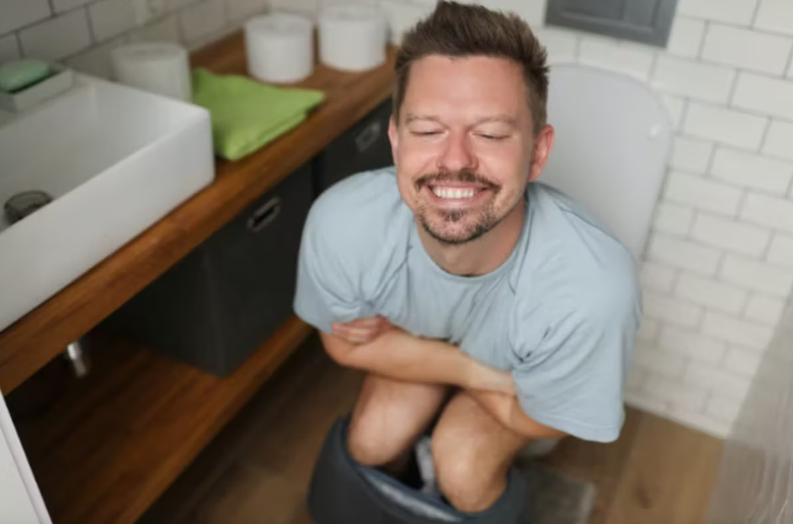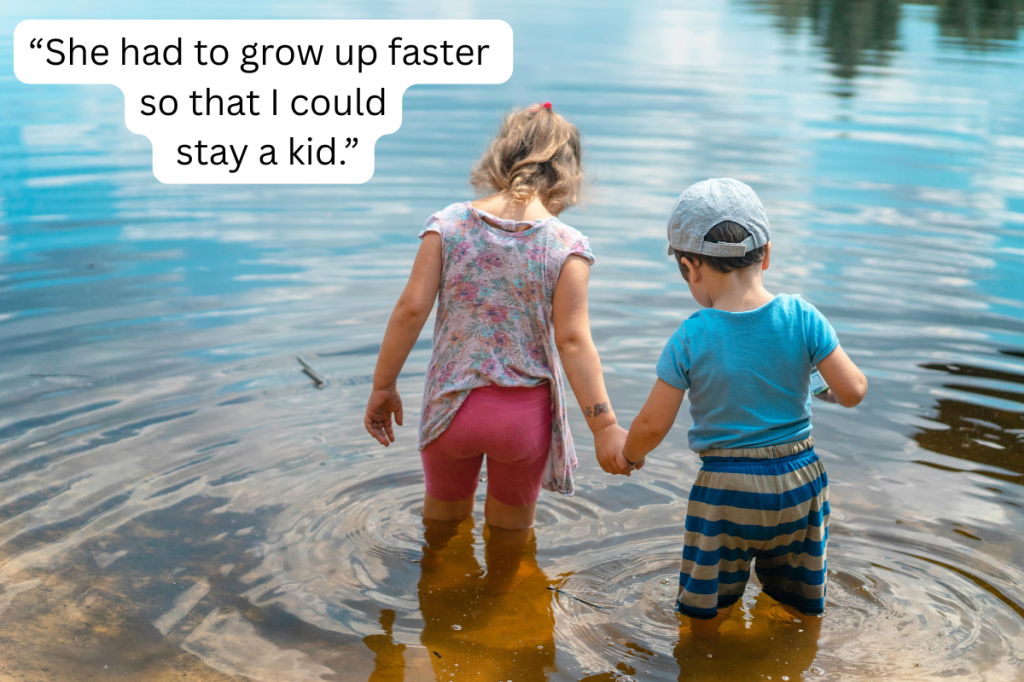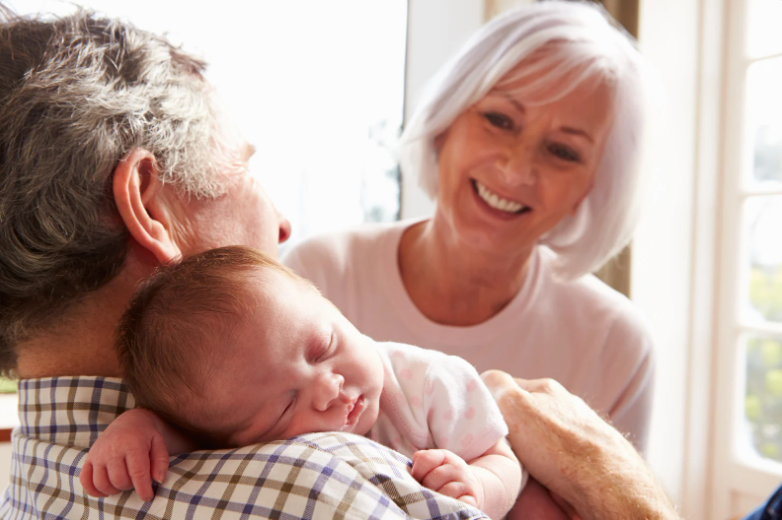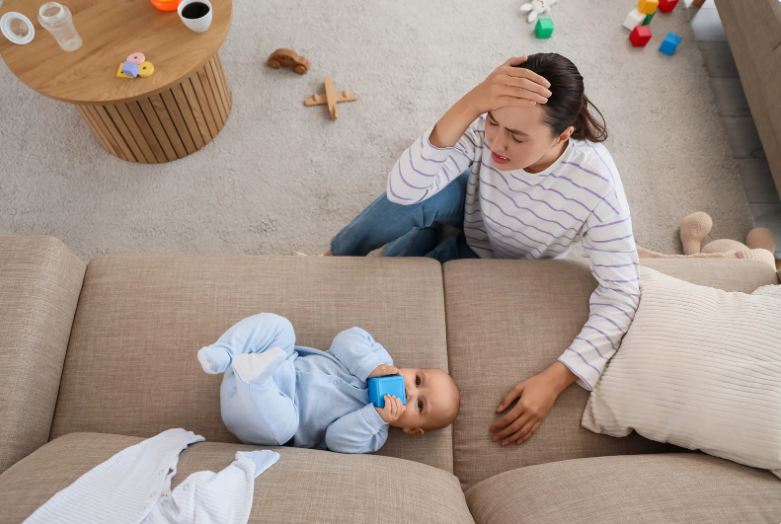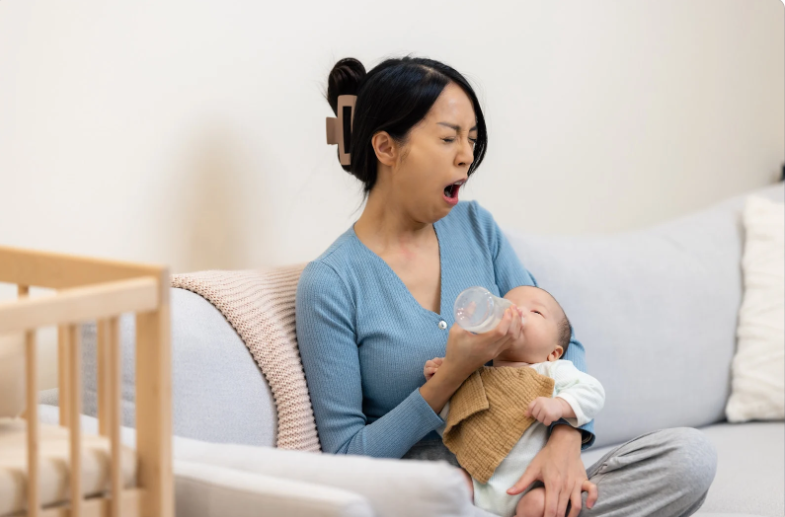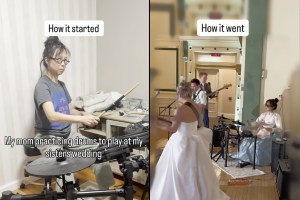We’ve come a long way toward gender equality in the past century, but there’s still a lot of room for improvement, especially when it comes to shared parenting roles.
Even in households where couples try for equitable distribution of responsibilities, one parent generally ends up as the “default parent”—the one who keeps track of things like clothing sizes and routine appointments and the one people look to first when they need to ask a question. Most of the time, moms are viewed as the default parent, whether or not that’s actually the reality. And on the flip side of that, dads are often assumed to be disengaged and clueless about their kids.
A story shared by a dad on Reddit who shared a story about being dismissed by doctors during an emergency room visit highlights this issue:
“Went to the emergency with my son and wife, he had an emergency food allergic reaction. Dr comes in and looks at us both and says ‘Mom come out and fill this paperwork, probably know more than Dad.’ While my wife was out of the room filling out paperwork a different Dr came up with a medical wristband and asked me to check if the info was correct. Before I could finish checking the spelling of his name he pulled it back stating ‘I should ask mom, Dads never know.’ I do know everything though.”
His frustration is understandable. This is a dad who is involved, engaged and knowledgeable about his kids. It’s not okay for someone to just assume he wouldn’t know anything. At the same time, there’s a reason for the assumption, as unjust as it feels for this father.
Medical professionals explained that dads not knowing their kids’ information is a genuine problem
For responsible dads, this may be a hard pill to swallow, but according to doctors, nurses and other medical professionals, the stereotype of the clueless dad is alarmingly close to reality. A lot of dads don’t know their kids’ birth dates, full name spelling or important health information like allergies. In fact, some doctors shared that a surprising number of men don’t even know anything about their own health history or conditions, instead relying on their wives to keep track of those things.
“I work in a medical field. I never assume the father knows nothing and I’ve met many fathers who were involved and knew all the relevant information. But I’ve also met fathers who genuinely didn’t know their kid’s birthday or when their last check up was or if they had any allergies. I’ve also met fathers who looked at me like I was mad for expecting them to know this. I’ve only ever met one mother like that.”
“ER nurse here. Although it’s unacceptable for them to assume dad is clueless, I understand why they do it. I can’t tell you how many kids I’ve checked in with dad who doesn’t even know their birthday, how old they are, or why they even brought them in. On the other hand, mom knows everything about the kid 99.9% of the time. That being said, I would never just dismiss dad right to his face. That’s very rude.”
“I guess you’d be surprised how many dads don’t know the answers to basic medical questions like DOB, allergies, height, weight. It’s super common, and yes, quite disheartening.”

“I recently started working in healthcare and it is shocking. I expected that sort of disinterest from older, more traditional parents, but they’re my age or younger. I just falsely believed that our generation would be better about stuff like that.”
“When any parent (almost always dad) doesn’t know the answer to something like a birthday or medical complaint, I don’t just laugh it off like some of my coworkers do. I want them to look me right in the eye and tell me that they don’t remember their kid’s birthday. I’m polite about it, but I’m certainly not saying ‘it’s okay, don’t worry about it.’ They should know.”
“Same. I’ve also had male patients who have no clue on what’s going on with themselves health wise and just straight up tell me to ask their wife.
They have zero clue on what meds they are taking, what those meds are for, what surgeries they’ve had in the past or why… it’s like they don’t think this information is important enough for them to know? So of course these guys wouldn’t be able to tell you a thing about their own kids when they nothing about their own health. There are men who aren’t this way of course. But too goddamn many of them have zero pertinent information in their skulls.”
“The stereotype doesn’t exist for no reason. I encountered so many dads who don’t know their kid’s DOB, social, allergies, medical history, immunizations, medications, school info, teachers, daily habits (like bedtime or diet), and so on.
Even worse they would sometimes lie or minimize rather than admit they don’t know.
Sometimes they would eventually say stuff like ‘Well the doctors said it’s asthma but I think he just doesn’t like running for sports’ or ‘He used to have some weird allergy thing, I don’t know what it was, but it’s better now’ and the wife would shout ‘YEAH IT’S BETTER BECAUSE HE TAKES 6 PILLS A DAY FOR IT.’ I rarely encountered this behavior with mothers.
Sorry you were judged based on the actions of others. That sucks and it’s not fair. Doctors have to be very pragmatic though and they will cut to the most reliable source of info, which is usually mom.”
It’s not just ignorant dads who perpetuate the problem.
Men definitely need to step up their game here, but that’s not the only change that needs to happen. Society’s low expectations and assumptions that moms are the only ones in the know also need to shift so that dads who do step up aren’t fighting an uphill battle of their own.
“What’s frustrating is that people essentially help to make the stereotype true when they default to the mom for things. My wife tends to know better about what’s going on with the kids at school and their extracurricular activities, but it’s because teachers/staff/whoever will prefer to reach out to her about things first, and maybe sometimes I’ll be included in an email here and there. Even when my name has been listed first on their contact info, my wife is the first choice to contact about most anything…

“And you know what? My wife hates it that she’s the one always being contacted about everything. That’s why we usually list me first or as the primary contact whenever they want parent contact information. 95% of the time, they still default to mom. I’m not stupid and aloof. My wife isn’t always available to read emails and respond to things in a timely manner. She doesn’t want to always be available. I don’t want to always be available either, but I’m available the vast majority of the time.”
“My husband is a stay at home dad. When the kid was in public school we had him as contact. Even called and had them make sure they noted it. They still always would call me first.”“I’m a dad who generally knows more about the children in these situations than the mom, so I completely get the frustration. It’s prejudice, pure and simple. And I dislike the dads that helped establish that stereotype. My dad didn’t fit the stereotype either.”
“My husband was a stay at home dad when our kids were younger, everyone knew (school, other parents), but still they always tried to reach me first if e.g one of the kids was sick and had to be picked up, to arrange for playdates and so on. ‘Thanks, let me try and reach husband because I’m at work and at least 1hr drive away, I can’t really speak to what he can/can’t do right now.’
Will admit that sometimes I do the exact same with other moms in similar positions, even though I’m aware, ugh. Typical gender role expectations are so ingrained into all of us somehow, even if we don’t like it ourselves. I hope the next generation will be less stuck in their expectations.”
Should we celebrate dads who actually keep track of their kids’ basic info? For now, yes.
It may seem silly to praise dads for something as basic as knowing their own kids’ birthday, but considering how many stories of clueless dads were in that thread, it seems to be warranted. Having low expectations and complaining about them doesn’t seem to help, so maybe celebrating dads who defy the stereotype will help raise the standard.

“See the glass as half full—as a Dad (I am), if you have even the first clue about any of this stuff you get a gold star for trying when, in the exact same circumstances, they’d probably be calling CPS on the mom. And if you meet the ‘mom’ standard, you’re on your way to the Nobel Prize for Dadding.”
“Dad’s like you are amazing. My dad was The Dad. He bought me pads and tampons when needed. He knew when I needed a break from my mom and brothers. He would take me out of school to go fishing or hunting. He was the first person to hold his grandson, and he cut his umbilical cord. He made many mistakes but being my father is not one of them.
My father became my dad when I was 3 years old. He is my example of what a man and father should be.”
Finally, someone summed up the gist of the issue: “Nobody wins in the patriarchy.” Not moms, not dads, not kids. So kudos to the original poster for pointing out an unfair prejudice, the commenters who explained where it comes from and everyone working to change the status quo. Hopefully conversations like this will help us make more progress on that front.













